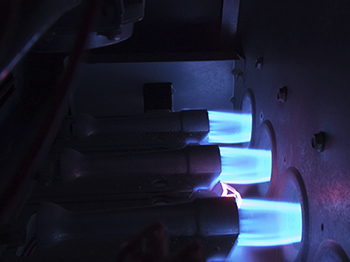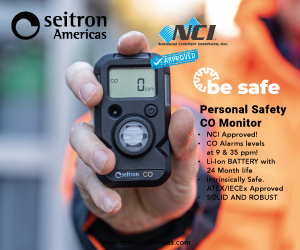Next month is National Indoor Air Quality Awareness Month. Now is the perfect time to bring important IAQ awareness issues to the forefront of your customers’ minds as you conduct your fall maintenance schedules.
Improper gas-fired appliance combustion is one of many potential IAQ issues. From a High-Performance HVAC Contracting perspective, here are nine reasons why you should be performing combustion testing and CO (Carbon Monoxide) safety checks on every service call.

- Prevent Carbon Monoxide Poisoning. Regular CO safety checks help identify potential sources of carbon monoxide leaks and prevent the risk of poisoning for occupants. As contractor Tom Spall says, “Draft testing is the heart of performance safety.”
- Ensure Appliance Efficiency. Combustion testing helps verify that gas-fired heating appliances (including furnaces, boilers, and water heaters) are burning fuel efficiently. Efficient combustion reduces energy waste, saves money on fuel bills, and minimizes greenhouse gas emissions.
- Ensure Proper Ventilation: Inadequate ventilation can lead to a buildup of combustion byproducts, including carbon monoxide, inside a building. Combustion testing helps ensure that appliances are venting properly and that indoor air quality is maintained at safe levels.
- Comply with Regulations. Many jurisdictions have regulations and codes in place that require HVAC contractors to perform combustion testing and CO safety checks. This ensures the safety of occupants.
- Detect Malfunctions and Safety Issues. Combustion testing can help detect problems such as poor airflow, duct leakage, dangerous exhaust flue gas conditions, and more. Discovering these issues early helps prevent costly repairs, system breakdowns, costly repairs, and safety issues.
- Enhance Customer Confidence. Performing thorough combustion testing and CO safety checks demonstrates a commitment to customer safety and satisfaction. Customers are more likely to trust HVAC contractors who prioritize safety and take the necessary steps to ensure their systems are operating correctly.
- Build a Professional Reputation. HVAC contractors who consistently conduct combustion testing and CO safety checks build a reputation for being knowledgeable and responsible. This reputation can lead to increased customer referrals and repeat business.
- Long-Term Cost Savings. Regular maintenance, including combustion testing, can extend the lifespan of heating appliances. It also reduces the likelihood of major repairs or replacements. This can save customers money in the long run.
- Educate Customers. HVAC contractors can use combustion testing and CO safety checks as opportunities to educate customers about the importance of proper appliance maintenance and the dangers of carbon monoxide poisoning. This empowers customers to take proactive steps to ensure their safety.
Combustion testing and CO safety checks are crucial for maintaining safe and efficient HVAC systems. They protect occupants from risks of carbon monoxide exposure, ensure compliance with regulations, and contribute to the overall performance and longevity of heating appliances.













Recent Comments